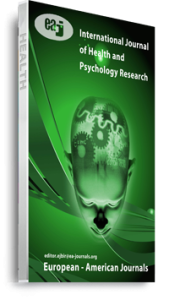This study examined theadolescents’ knowledge and attitude towards regular healthcare as a way of improving HIV/STDs testing and treatment among secondary school students in Oyo State, Nigeria. This study employed the descriptive research design type. Two hundred and twenty participants selected through multi-stage stratified random sampling technique were used for the study. One main instrument was used in collecting data. Data was analyzed using Pearson Product Moment Correlation Coefficient and T-test. Results showed a significant relationship between students’ knowledge and attitude to regular healthcare on the testing and treatment of HIV/STDs (r = .167, N= 220, P < .05). Also, a significant difference in the knowledge (Crit-t = 1.96, Cal.t = 3.065, DF = 218, P < .05) while no significant difference was found in the attitude (Crit-t = 1.96, Cal.t = 1.096, df = 218, P < .05) of regular healthcare as a factor in the testing and treatment of HIV/ STDs among private and public secondary schools’ students. A gender difference in attitude(t-cal = 2.310, t-crit = 1.960, P = .05) toward regular healthcare was observed but not in knowledge (t-cal = .528, t-crit = 1.960, P = .05). Also, no significant differences were found in the knowledge (Crit-t = 1.96, Cal.t = 0.323, DF = 218, P > .05 level) and attitude (Crit-t = 1.96, Cal.t = 0.259, DF = 218, P > .05) towards HIV/STDs Testing and Treatment of single parenting and intact home (both parents) respondents.On the basis of the findings, it was established that while the majority of secondary students had heard about HIV/STDs, their knowledge was inadequate. Thus, schools have a role to play in facilitating the access of young people to necessary reproductive health services and to link education and services so that students may bridge knowledge and attitudes with action
Keywords: Adolescents, HIV/STD, Knowledge, Nigeria, Oyo State, attitude, regular healthcare, secondary school students

